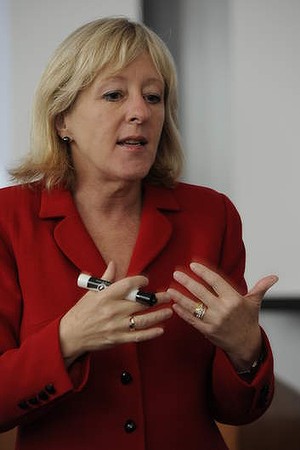Recipients
| 2024 Award | Giuliana Perrone, Rehearsals for Reparations, RSF: The Russell Sage Foundation Journal of the Social Sciences June 2024, 10(2) 113-131. |
| 2023 Award | Lucy Jewel, Comparative Legal Rhetoric, 110 Ky. L. J. 107 (2021) and Kathy Stanchi, The Rhetoric of Racism in the United States Supreme Court, 62 B.C. L. Rev. 1251 (2021). |
| 2019 Award | Jeannine Marie DeLombard, Dehumanizing Slave Personhood, 91:3 American Literature 491 (2019) |
| 2018 Award | Anne Ralph, Narrative-Erasing Procedure, 18 Nev. L.J. 573 (2018) |
| 2017 Award | Yvette Russell, Woman’s Voice/Law’s Logos: The Rape Trial and the Limits of Liberal Reform, 42:2 Australian Feminist Law Journal 273 (2017) |
| 2016 Award | Stephen Paskey, Telling Refugee Stories: Trauma, Credibility, and Adversarial Adjudication of Claims for Asylum, 56 Santa Clara L. Rev. 457 (2016) |
| 2015 Award | Corinne Blalock, Neoliberalism and the Crisis of Legal Theory, 77:4 Law & Contemporary Problems 71 (2015) |
| 2014 Award | Bruce Hay, The Damned Dolls, 26 Law & Literature 321 (2014) |
| 2013 Award | Michael Burger, Environmental Law/Environmental Literature, 40 Ecology L. Q. 1 (2013) |
Penny Pether

A passionate advocate for interdisciplinary scholarship in law, literature, and language, Penelope J. Pether was Professor of Law at Villanova University School of Law and former Professor of Law and Director of Legal Rhetoric at the American University Washington College of Law. Her own scholarship focused not only on law, literature, and language, but also on constitutional and comparative constitutional law, legal theory (including constitutional theory), common law legal institutions, judging practices, and professional subject formation.
Professor Pether was a respected educator, dedicated mentor and beloved friend and colleague. During her tenure at Villanova, she taught a wide variety of constitutional law, law and literature, criminal law and criminal procedure courses. Professor Pether distinguished herself by the positive impact she had on so many students over the years at VLS and the contributions she made to the field through her scholarship. She will also be remembered for her work with the Inside-Out Prison Exchange Program, which brings law students and incarcerated men and women together to explore and learn about issues of crime and justice from behind prison walls.
Professor Pether earned her undergraduate degree and LLB from the University of Sydney in Australia, where she won the Total Australia Prize and Walter Reid Memorial Grants in successive years. She later earned her Masters in Letters from the University of New England and her PhD in English Literature, also from the University of Sydney. Following law school, she served as an Investigation Officer and Executive Assistant (Police) in the Office of the Ombudsman, New South Wales, and was a solicitor in the Sydney office of the national law firm of Freehill, Hollingdale & Page. Professor Pether taught as a Lecturer-in-Law at the University of Sydney and the University of Wollongong, and was an Assistant Professor and Director of Lawyering Skills at Southern Illinois University School of Law.
Award Criteria
The Penny Pether Award for Law & Language Scholarship is given annually to an article or essay published during the preceding year (September 1 to September 1) that exemplifies Penny’s commitment to law and language scholarship and pedagogy.
The Committee selecting award recipients from among the articles and essays nominated will look for scholarship that not only embodies Penny’s passion and spirit but also has some or all of the following characteristics:
- “[S]cholarship concerning itself with the unique or distinctive insights that might emerge from interdisciplinary inquiries into ‘law’ grounded in the work of influential theorists of language and discourse.”
- Scholarship that “attempts to think through the relations among subject formation, language, and law.”
- Scholarship that provides “accounts of—and linguistic interventions in—acute and yet abiding crises in law, its institutions and discourses.”
- Scholarship and pedagogy that is “[c]arefully theorized and situated, insisting on engaging politics and law, [and that] charts ways for law and its subjects to use power, do justice.”
More explanations and descriptions of these characteristics can be found in Penny’s chapter from which these quotations are drawn: Language, in Law and the Humanities: An Introduction (Austin Sarat et al. eds., Cambridge U. Press 2010).
Selection Committee
David S. Caudill
Professor of Law
Arthur M. Goldberg Family Chair
Villanova University School of Law
Linda L. Berger
Professor of Law Emerita
William S. Boyd School of Law at UNLV
Jeannine Marie DeLombard
Associate Professor, English Department
University of California Santa Barbara
J. Amy Dillard
Assistant Professor of Law
University of Baltimore School of Law
Ian Gallacher
Professor of Law & Director of Legal Communication and Research
Syracuse University College of Law
Bruce Hay
Professor of Law
Harvard Law School
Nancy M. Modesitt
Professor of Law
University of Baltimore School of Law
Jeremy Mullem
Clinical Professor of Law & Director of Legal Writing Program
Duke Law
Stephen J. Paskey
Legal Skills Faculty
University at Buffalo School of Law
Terrill Pollman
Professor of Law Emerita
William S. Boyd School of Law at UNLV
Anne E. Ralph
Clinical Professor of Law
The Ohio State University Moritz College of Law